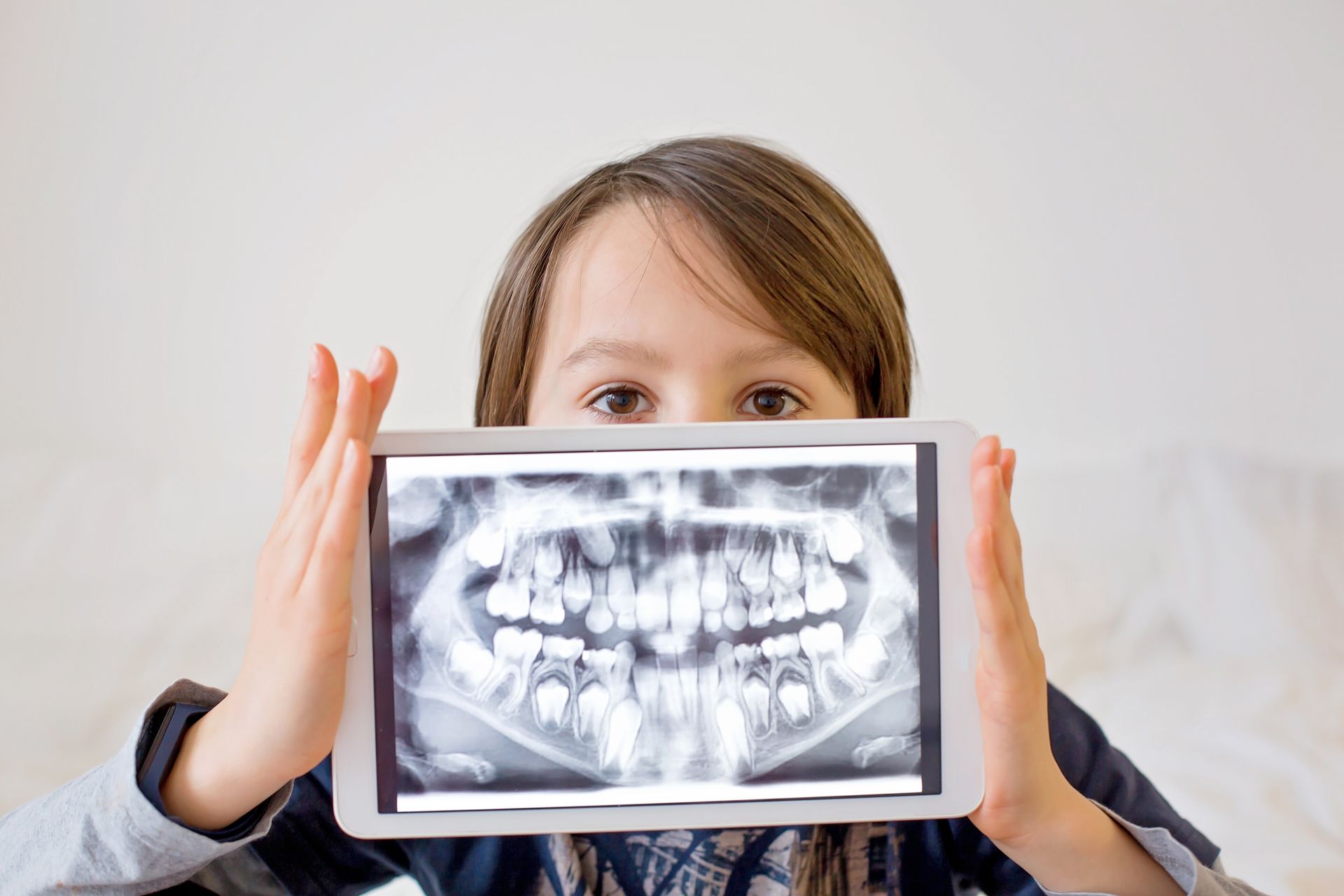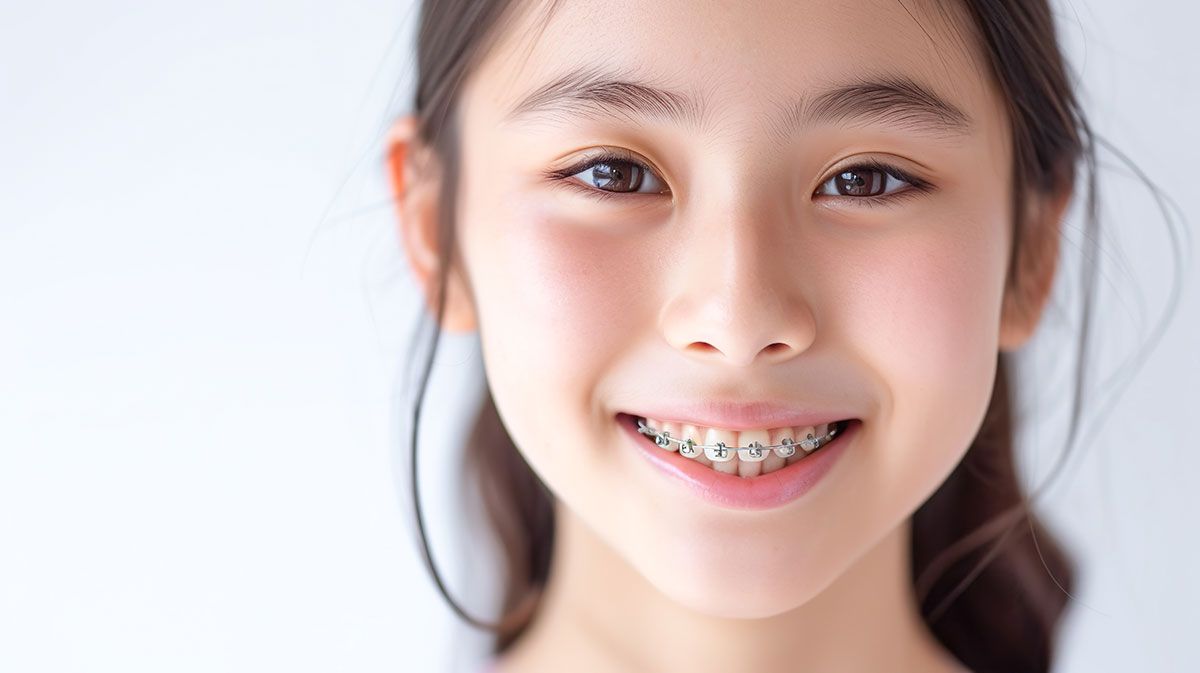If you’re wondering when to consult a paediatric dentist or what signs indicate your child might need orthodontic attention, you’re not alone. Developing teeth pose unique challenges and parents could use help in caring for their children’s dental health.
That’s why we’ve prepared this guide. You’ll find various tips, such as spotting telltale signs of orthodontic problems and inculcating positive dental habits.
Tip 1: start early
The path to a radiant smile begins earlier than one might assume. Paediatric dental care should begin early in a child’s life, even before their first tooth erupts. Dentists generally recommend scheduling your child’s first dental visit by their first birthday or once the first tooth appears, whichever comes first.
But you might be wondering how you should care for gums and teeth that are just starting to peek through? Cleaning a baby’s gums after each feeding with a soft, clean washcloth helps remove harmful bacteria. Once the first tooth erupts, use an age-appropriate toothbrush with a smear of fluoride toothpaste to gently brush their teeth twice a day.
Initiating these
basic steps at an early stage can aid in the prevention of future teeth and gum concerns, as you speak to dentists and monitor your child’s long-term dental health.

Tip 2: look out for warning signs
Similar to monitoring developmental milestones, certain dental indicators can suggest possible dental issues or orthodontic complications.
Some symptoms of an underlying dental condition include:
- Early or late loss of baby teeth
- New teeth coming through abnormally
- Pain of difficulty in chewing or biting
- Thumb or finger sucking
- Constant mouth breathing
- Teeth that aren’t meeting properly
- Speech problems
- Crowded or misplaced teeth
- Facial imbalance or asymmetry
- Shifting or noisy jaws
- Frequent biting of the cheek or the roof of the mouth
Notice any of the signs above? Then you should seek
orthodontic treatment for your kid.
Tip 3: Teach your kid healthy habits
The foundation of oral health is rooted in cultivating good oral hygiene habits from early childhood. Apart from regular dental visits, brushing and flossing at home play a pivotal role in maintaining those pearly whites.
Imparting the right brushing technique to your child is vital. A straightforward and efficient method would be the circular brushing technique. Here’s how to do it:
- Start by placing the toothbrush at a 45-degree angle to the gums.
- Gently move the brush in a circular motion.
- Make sure to brush all surfaces of the teeth–the outer, inner, and chewing surfaces.
Don’t forget the tongue! Brushing the tongue removes bacteria and freshens breath. Lastly, ensure your child brushes their teeth twice a day–in the morning and before bedtime.
Flossing becomes more important in your child’s dental regime as they age. It helps to clean the tight spaces between teeth where a toothbrush can’t reach. A rule of thumb is to start flossing your child’s teeth once they touch each other.
To make these habits an integral part of your child’s life, you should make them a fun and regular part of their day. You could include songs and games as part of your child’s dental routine.

Tip 4: provide good nutrition
Proper nutrition is a key component of dental health. It’s not just about avoiding sweets, but also about providing key nutrients that teeth need to grow strong and healthy.
Your child’s diet should be rich in fruits, vegetables, lean proteins, and dairy products. These foods are not only good for overall health, but they also contribute to healthy teeth and gums.
Avoid or limit sugary and acidic food and drinks, as they can lead to tooth decay. If you do include them, serve them with other healthier meals to minimise their impact on the teeth.
Healthy eating habits for good oral health start at home. By fostering these habits early, you can help your child maintain good oral health throughout their life.
Tip 5: protect your child’s teeth
As your child develops and becomes more energetic, safeguarding their teeth can be important. For instance, you can encourage them to use a mouthguard during sports activities to prevent dental injuries.
Habits like thumb-sucking and pacifier use may seem harmless, but if they persist beyond the age of three, they can affect the growth and alignment of teeth. If you are having trouble breaking your kid’s habit you may need professional help. At Dr Catherine Lee Orthodontics, we offer treatment with a habit breaker, which is an appliance used to widen the top jaw and discourage thumb sucking.
Tip 6: go for regular dental check-ups
Frequent dental check-ups are more than just addressing cavities and cleanings. They are your child’s protection against long-term oral problems. When choosing a dental clinic in Singapore for your kid, you can consider looking for someone who specialises in paediatric dentistry.
You may also factor in the clinic’s location but you should weigh this against the clinic’s expertise. You may wish to visit a paediatric dentist instead of a regular dentist, especially if your child has a severe orthodontic issue.
Treatment cost is another consideration. You should speak to your doctor to get a cost breakdown and insurance coverage options.
Finally, don’t forget to read patient reviews and schedule a consultation with your potential dentist or orthodontist. This gives you a chance to ask questions, gauge your comfort level with them and ensure that their treatment philosophy aligns with your expectations.
Tip 7: lead by example
Parents serve as the primary role models for their children, and this holds true for dental care as well. Your perspective on oral hygiene can exert a significant influence on your child’s dental practices.
Show your child that you value good dental health by brushing and flossing regularly, eating a healthy diet, and scheduling regular dental visits. Seeing your own example, your child will be encouraged to do their best, too.
Looking for a paediatric dentist in Singapore?
If there’s one insight that unites all the tips shared in this article, it’s this: your child’s dental health begins with proactive steps taken today. We understand, though, that it can be hard to identify all the dental warning signs on your own.
That’s where a paediatric orthodontist can help. Dr Catherine Lee has years of experience in providing various dental treatments for kids, accounting for their unique health profiles and needs. She believes in partnering parents for the best dental outcomes for children.







